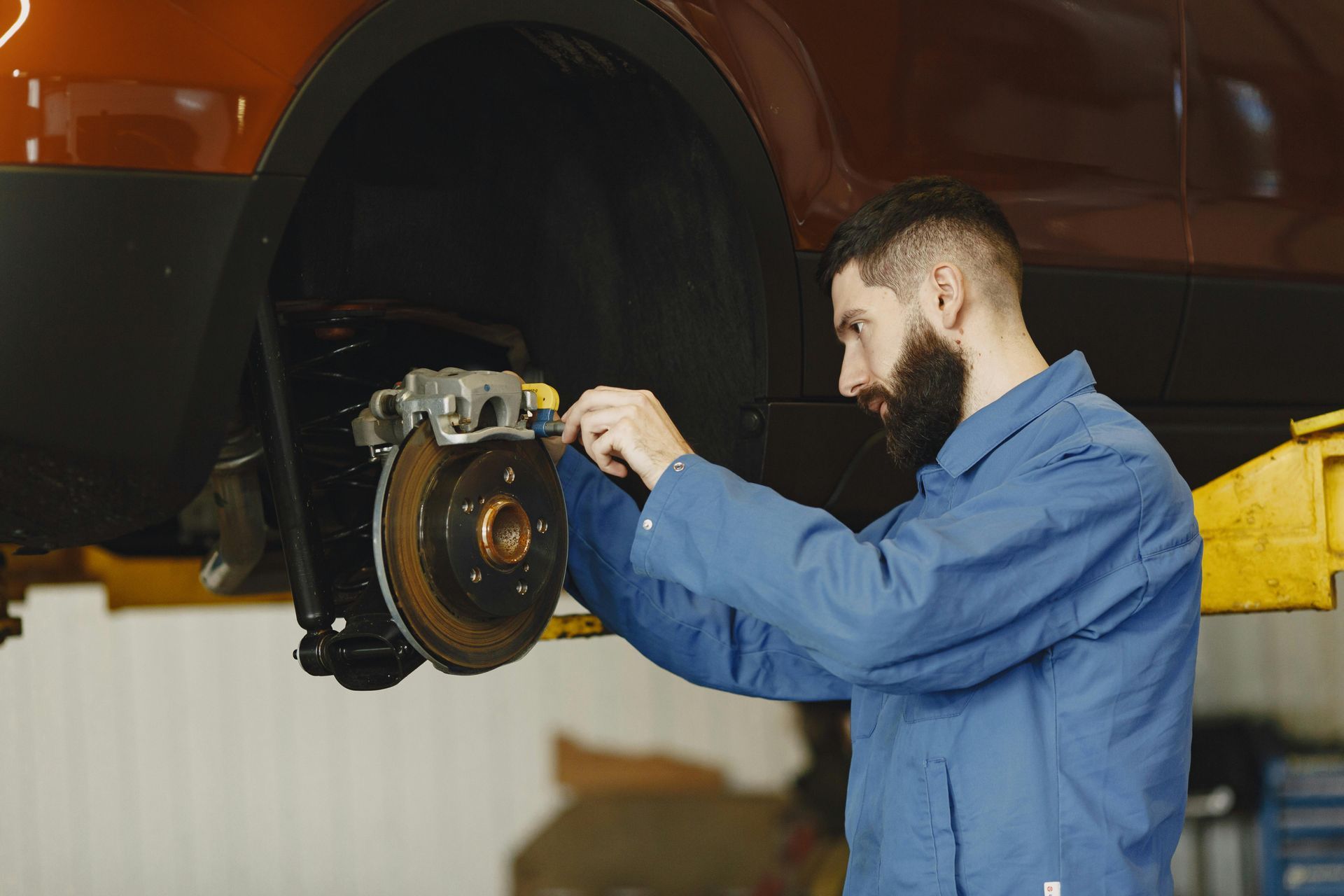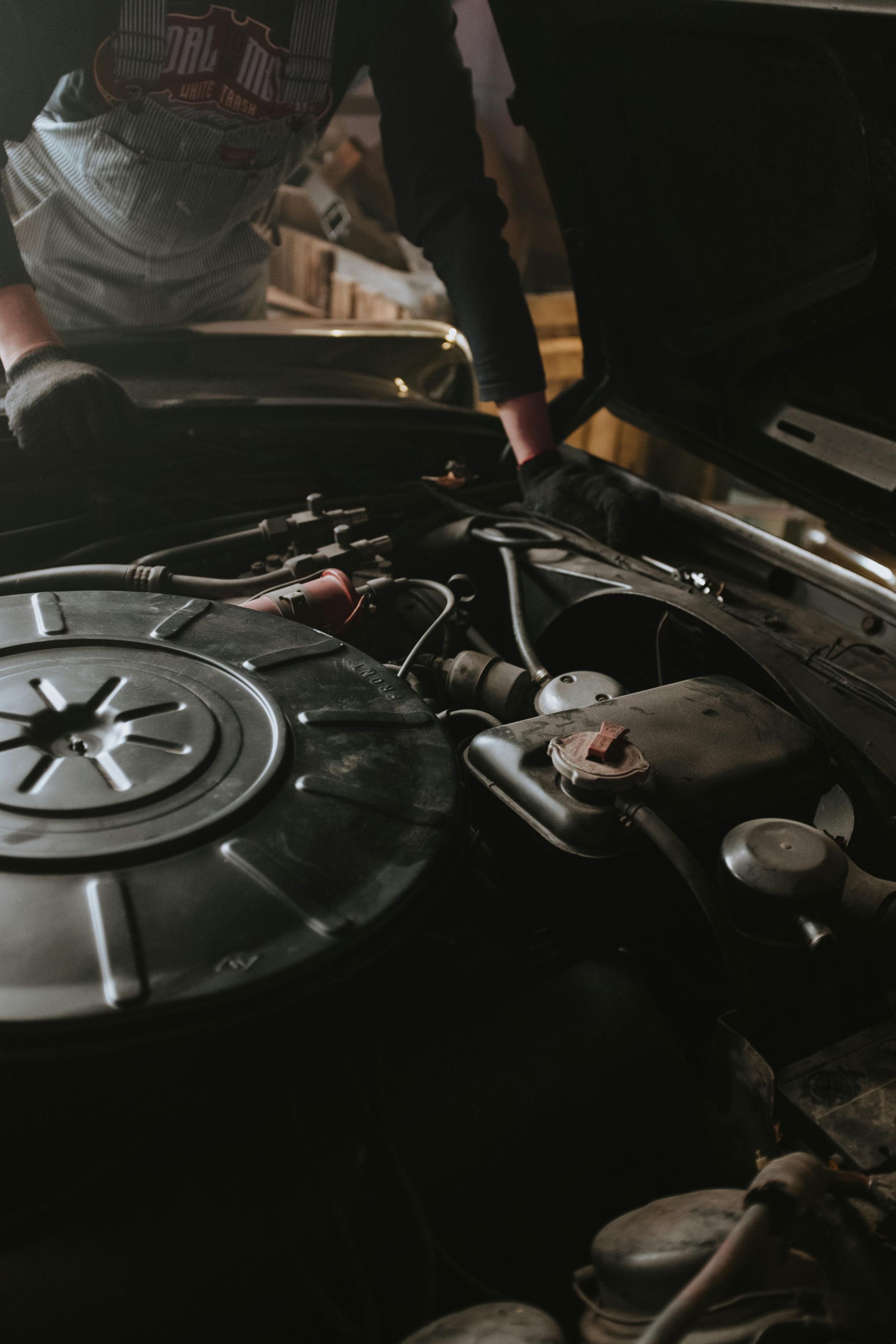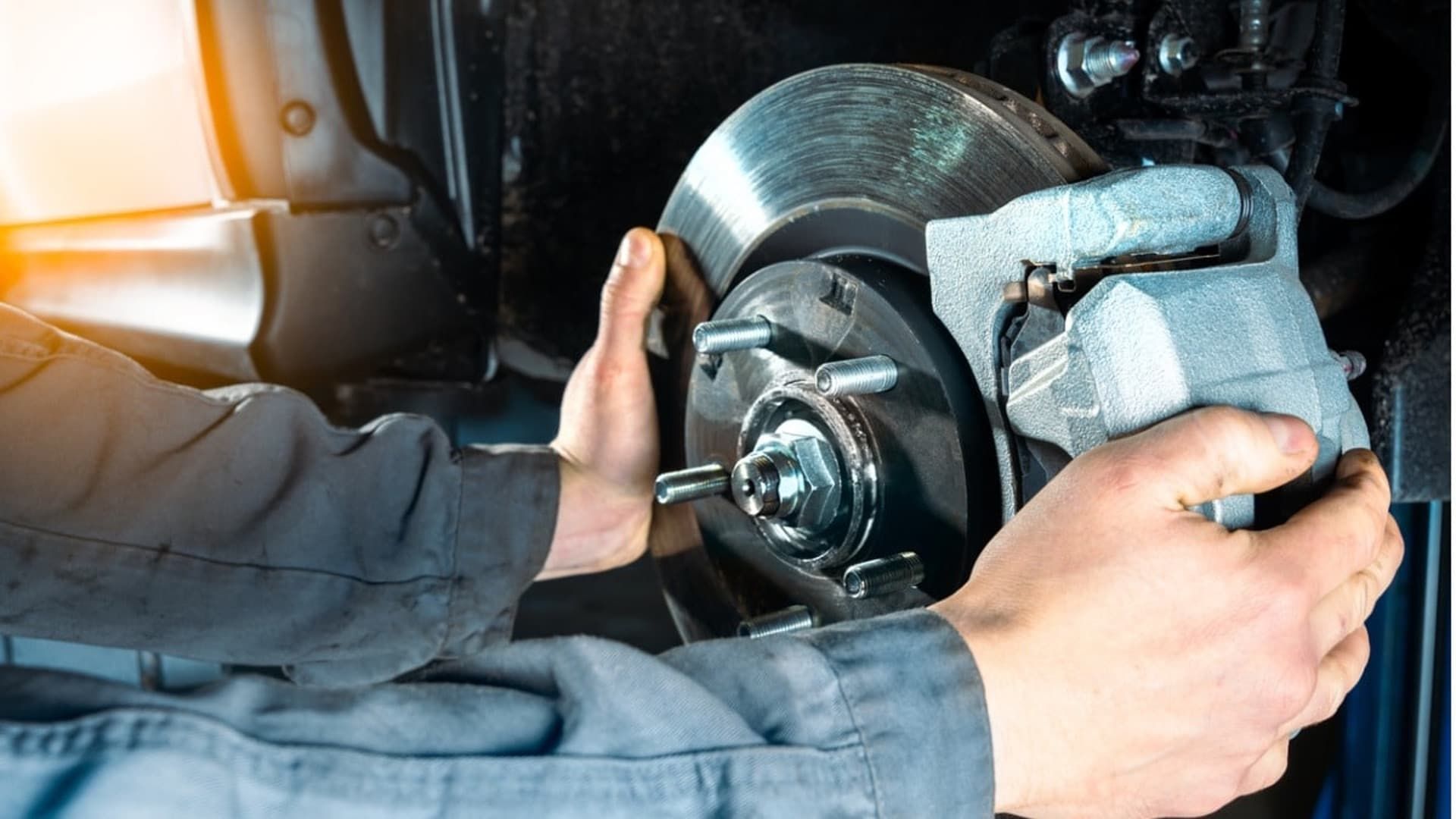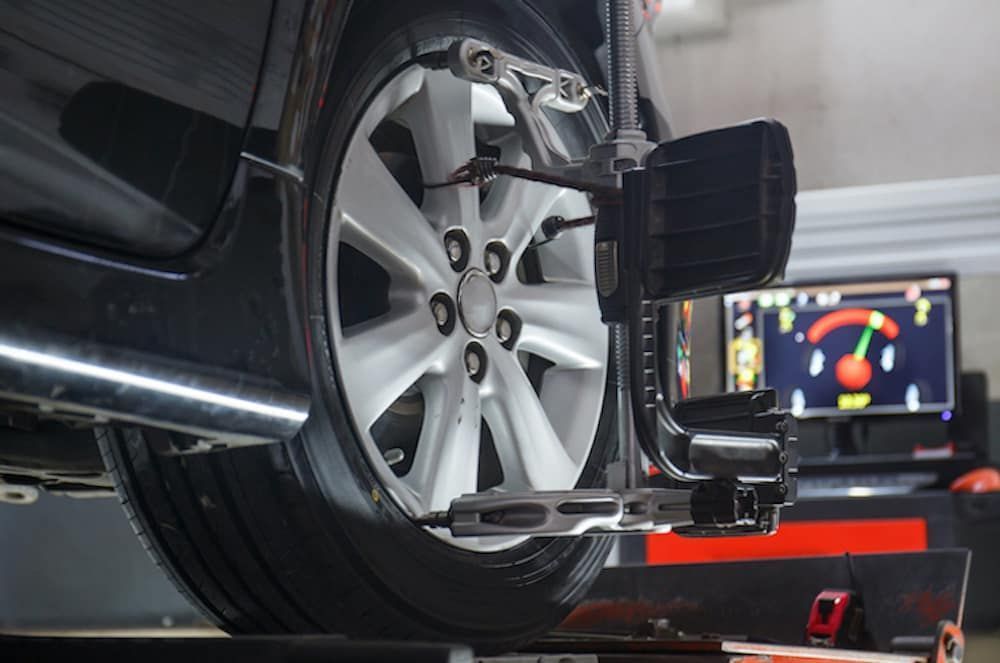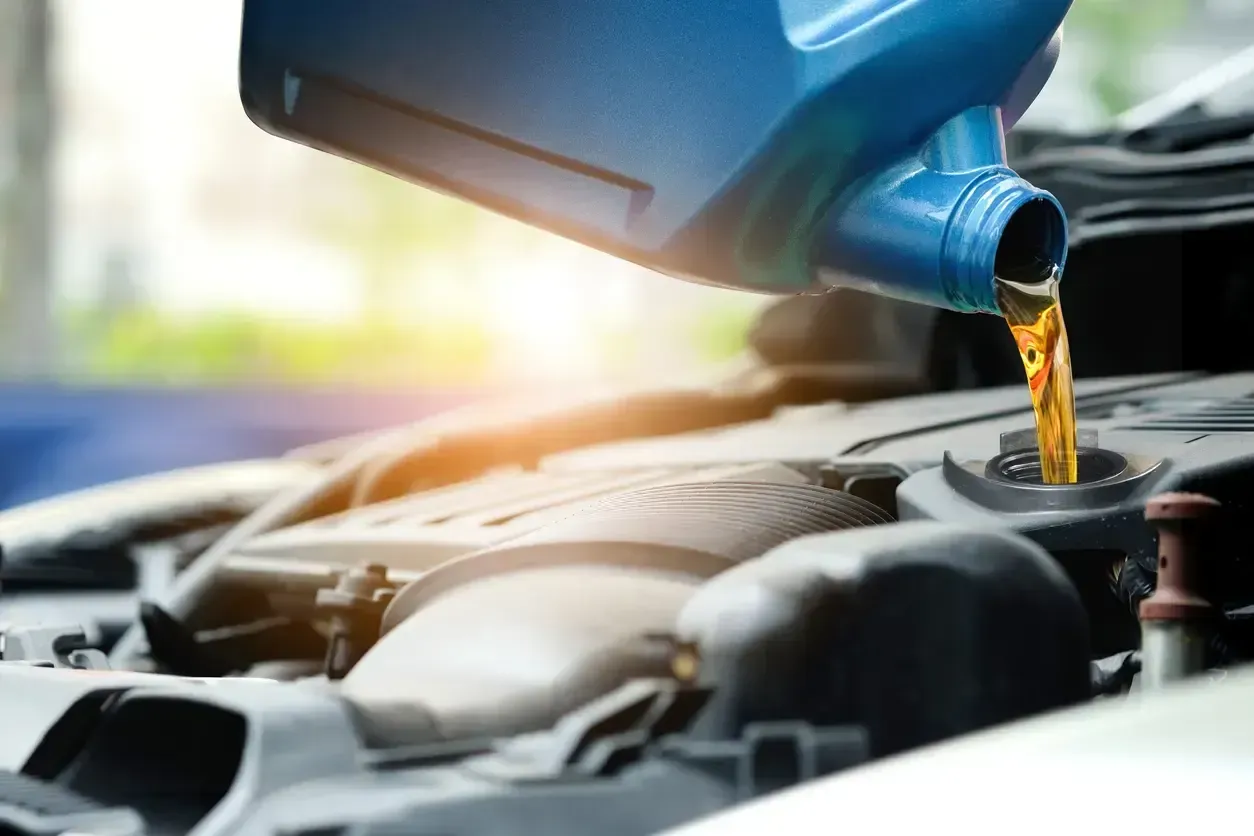Mon - Thu 8:00 AM - 5:30 PM
Fri 8:00 AM - 5:00 PM
Mon - Thu 8:00 AM - 5:30 PM
Fri 8:00 AM - 5:00 PM
4444 Reviews
A Hard Brake Pedal & A Cold Engine
If you’ve ever started your car and felt a hard brake pedal, you’re not alone.
While it may seem like a minor inconvenience, this common problem could signal a more serious
issue with your vehicle’s braking system. Let’s explore the potential causes and solutions.
Why Is My Brake Pedal Hard When I Start My Car?
A hard brake pedal when starting your car can be due to issues with the brake booster, low brake fluid, or a vacuum leak. It’s essential to address these issues promptly to prevent further brake system problems.
Key Takeaways:
- A hard brake pedal may indicate a brake booster failure, vacuum leak, or low brake fluid.
- Diagnosing brake pedal issues early helps prevent severe brake problems and ensures safety.
- Regular brake system maintenance and inspections can help avoid pedal issues.
What Causes a Hard Brake Pedal When Starting Your Car?
Several factors could contribute to a hard brake pedal. Below are the most common causes:
1. Brake Booster Problems
The brake booster amplifies the force applied to the brake pedal, making it easier to stop your car. If the brake booster malfunctions, the pedal will feel much harder because it can't provide the necessary assistance.
What to Do:
- Check for vacuum leaks in the brake booster system.
- Have the brake booster inspected and replaced if necessary.
2. Vacuum Leak in the Brake Booster
The brake booster relies on a vacuum to assist in braking. A vacuum leak can prevent the booster from functioning correctly, leading to a hard brake pedal.
This issue can occur when the vacuum hose is damaged or disconnected.
What to Do:
- Inspect the vacuum hose and brake booster for leaks or damage.
- Replace any damaged hose or the brake booster to restore proper function.
3. Low Brake Fluid
Low brake fluid can cause a hard brake pedal because there isn’t enough fluid to properly activate the braking system. Brake fluid transmits pressure from your foot to the brake components.
What to Do:
- Check the brake fluid level and top it off if necessary.
- If fluid levels are consistently low, check for leaks in the system.
4. Air in the Brake Lines
If air enters the brake lines, it reduces the efficiency of the brake fluid, causing the pedal to feel stiff or unresponsive. This often happens after a recent brake repair or due to a leak.
What to Do:
- Bleed the brakes to remove trapped air.
- Have a mechanic inspect the brake lines for leaks or damage.
5. Master Cylinder Failure
The master cylinder distributes brake fluid to the brake lines. If it fails, it may not properly send fluid to the brakes, causing a hard pedal. This issue typically requires master cylinder replacement.
What to Do:
- Have the master cylinder inspected for wear or damage.
- Replace the master cylinder if necessary.
How to Diagnose and Fix a Hard Brake Pedal
If you’re experiencing a hard brake pedal, here’s how to diagnose the issue:
- Check Brake Fluid Levels
- Ensure the fluid reservoir is full.
- If low, top it off and check for leaks.
2. Inspect the Brake Booster and Vacuum Lines
- Look for cracks, wear, or disconnections in the vacuum hose.
- If a vacuum leak is found, replace the hose or brake booster.
3. Look for Leaks in the Brake System
- Check for fluid pooling under the car.
- Inspect brake lines, master cylinder, and other brake components for leaks.
4. Bleed the Brakes
- Remove any air trapped in the brake lines.
- Use a brake bleeding tool or seek professional help.
5. Have the Master Cylinder Inspected
If previous solutions don’t work, the master cylinder may need replacement.
What Happens if You Ignore a Hard Brake Pedal?
Ignoring this issue can lead to serious consequences:
- Reduced Braking Efficiency: You’ll need to apply more force to stop your car, increasing stopping distance.
- Increased Wear on Components: A malfunctioning brake system can wear out brake pads and rotors faster.
- Safety Risks: Difficulty in braking can lead to dangerous driving conditions and potential accidents.
Preventing Brake Pedal Issues
To avoid dealing with a hard brake pedal in the future, regular brake system maintenance is key:
Check Brake Fluid Regularly as part of routine maintenance.
Inspect the Brake Booster and Vacuum Lines periodically.
Replace the Cabin Air Filter to help the brake system perform better.
Have the Master Cylinder Checked if any issues arise.
Ensure Proper Brake System Maintenance by getting an annual brake inspection by a certified mechanic.
If you need general auto repair or maintenance for your vehicles, come by First Call Auto Care. We're conveniently located at 29444 Woodward Ave in Royal Oak, MI.
Frequently Asked Questions
Why is my brake pedal hard when I start my car?
A hard brake pedal can be caused by a malfunctioning brake booster, low brake fluid, vacuum leaks, or air in the brake lines. A brake system inspection can help diagnose the issue.
How can I fix a hard brake pedal?
Start by checking brake fluid levels and inspecting vacuum lines for leaks. If fluid levels are low or leaks are found, repair or replace the faulty components. If the issue persists, the master cylinder may need replacement.
Is it dangerous to drive with a hard brake pedal?
Yes, driving with a hard brake pedal is dangerous because it reduces braking efficiency and increases the risk of accidents. It’s crucial to address the issue immediately.
Visit Our Shop in Royal Oak, MI
Your Trusted Auto Shop in Royal Oak, MI
Over 50 Years of Experience in Quality Auto Care
First Call Auto Care
Mon - Thu 8:00 AM - 5:30 PM
Fri 8:00 AM - 5:00 PM
Services
List of Services
-
AC & Heat RepairAC & Heat Repair
-
Brake RepairBrake Repair
-
Engine Repair & MaintenanceEngine Repair & Maintenance
-
Oil ChangeOil Change
-
Suspension RepairSuspension Repair
-
Tire Sales & ServiceTire Sales & Service
-
Transmission RepairTransmission Repair
-
Wheel AlignmentWheel Alignment
-
Muffler RepairMuffler Repair
-
Diesel RepairDiesel Repair
-
Fleet ServicesFleet Services
List of Services
-
AC & Heat RepairAC & Heat Repair
-
Brake RepairBrake Repair
-
Engine Repair & MaintenanceEngine Repair & Maintenance
-
Oil ChangeOil Change
-
Suspension RepairSuspension Repair
-
Tire Sales & ServiceTire Sales & Service
-
Transmission RepairTransmission Repair
-
Wheel AlignmentWheel Alignment
-
Muffler RepairMuffler Repair
-
Diesel RepairDiesel Repair
-
Fleet ServicesFleet Services
Services
List of Services
-
AC & Heat RepairAC & Heat Repair
-
Brake RepairBrake Repair
-
Engine Repair & MaintenanceEngine Repair & Maintenance
-
Oil ChangeOil Change
-
Suspension RepairSuspension Repair
-
Tire Sales & ServiceTire Sales & Service
-
Transmission RepairTransmission Repair
-
Wheel AlignmentWheel Alignment
-
Muffler RepairMuffler Repair
-
Diesel RepairDiesel Repair
-
Fleet ServicesFleet Services
List of Services
-
AC & Heat RepairAC & Heat Repair
-
Brake RepairBrake Repair
-
Engine Repair & MaintenanceEngine Repair & Maintenance
-
Oil ChangeOil Change
-
Suspension RepairSuspension Repair
-
Tire Sales & ServiceTire Sales & Service
-
Transmission RepairTransmission Repair
-
Wheel AlignmentWheel Alignment
-
Muffler RepairMuffler Repair
-
Diesel RepairDiesel Repair
-
Fleet ServicesFleet Services




© 2024 First Call Auto Care. All Rights Reserved | Website managed by Shopgenie

